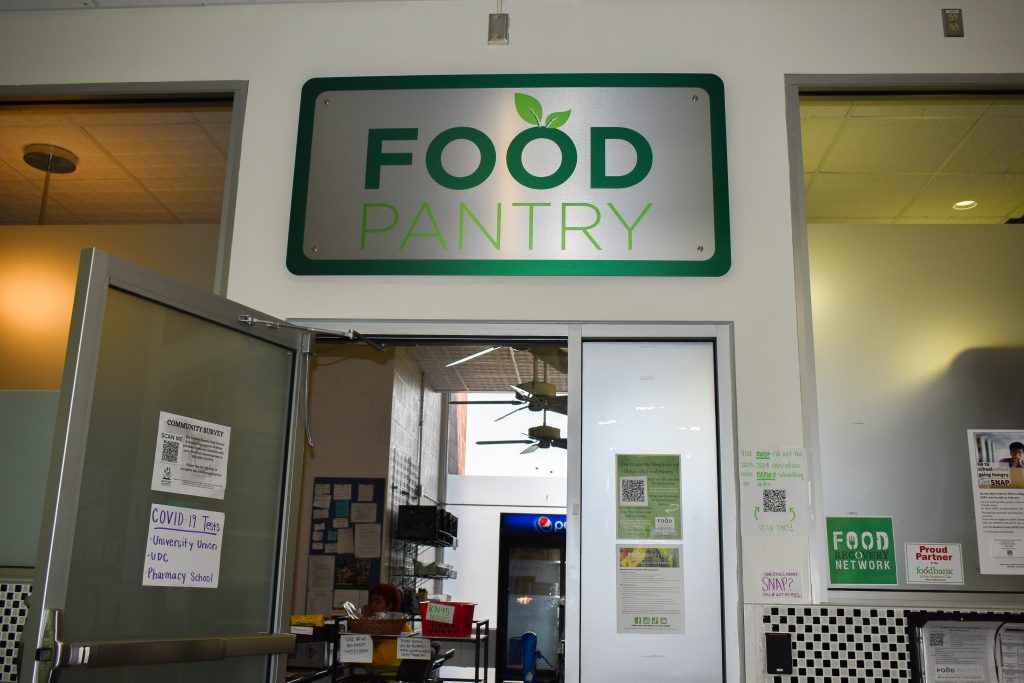SUNY Chancellor John King recently announced a $1 million plan to fight food insecurity on SUNY campuses that may benefit Binghamton University students.
The money funding the initiative — taken out of the state’s SUNY budget for this year — will be distributed to food pantries and outreach initiatives across SUNY campuses, in hopes of supporting struggling students. Administrators plan to expand campus’ existing resources, including food pantries, which are at every SUNY school. As part of the proposed program — which has not yet been named — over two dozen campuses will receive additional funding to purchase food and supplies for their food pantries. While the initiative is currently just for the 2023-24 fiscal year, King hopes the money will be renewed on an annual basis.
Food insecurity — or a lack of consistent access to adequate food sources — impacts a sizable portion of the United States. According to the United States Department of Agriculture, around 10 percent of American households faced some level of food insecurity in 2021. For college students, food insecurity is even more prevalent — 29 percent of students at four-year colleges and 38 percent of students at two-year colleges face food insecurity, according to the 2021 Hope Center survey on basic needs insecurity.
In a SUNY press release, King emphasized the relationship between food security and student success.
“Food insecurity was a consistent issue brought up by students during my 64-campus tour,” King said. “A hungry student is unable to dedicate their time fully to their studies because of the constant stress and anxiety of when their next meal will be or where it will come from. Supporting students facing food insecurity is a priority for increasing student success and upward mobility across the system, and we are grateful for how our campuses are partnering and investing to make sure that no student is forced to choose between pursuing their education or experiencing hunger.”
At minimum, 22 campuses will directly buy food and supplies for their food pantry, 18 will hire staff and six will expand or improve their food pantry’s physical space. Additionally, technological advancements will be made to the dining systems as five campuses will invest in software to track inventory and improve food-pantry operations, and four campuses will create new ways for students to access the dining halls through meal swipe programs, vouchers or dining hall access over breaks, according to a the press release.
The Food Pantry at Binghamton University, located above the College-in-the-Woods Dining Center, provides free food and personal care items. Smaller, satellite food pantries can also be found on the Health Sciences Campus in the School of Pharmacy and Pharmaceutical Sciences and the University Downtown Center. It serves to temporarily fulfill basic needs for students struggling with food insecurity. According to their website, if students’ “physiological needs” aren’t met, it ultimately decreases their ability to reach their “full potential.”
Once a week, students can place an order for items they may need, and then pick their order up in person. To complete an online order, students must fill out an attestation form confirming that they have below-average income or receive state or federal government assistance.
Brianna Leishear, a sophomore majoring in mathematics, transferred to BU last spring. She said that she was unaware of the Food Pantry’s services as a new student.
“I honestly haven’t even seen any food pantries around [BU],” Leishear wrote. “I wasn’t aware of the Food Pantry here, but, to be honest, I wasn’t aware of anything other than the Lecture Hall.”
The proposed initiative will also expand outreach services for SUNY students to apply to the Supplemental Nutrition Assistance Program (SNAP), which provides recipients with a monthly preloaded debit card that can be used for purchasing food and other basic necessities. Students can be eligible for SNAP if they meet certain requirements, like participating in work-study or the Educational Opportunity Program (EOP). King’s plan will work to inform students of SNAP and ensure those who are eligible can apply for benefits.



